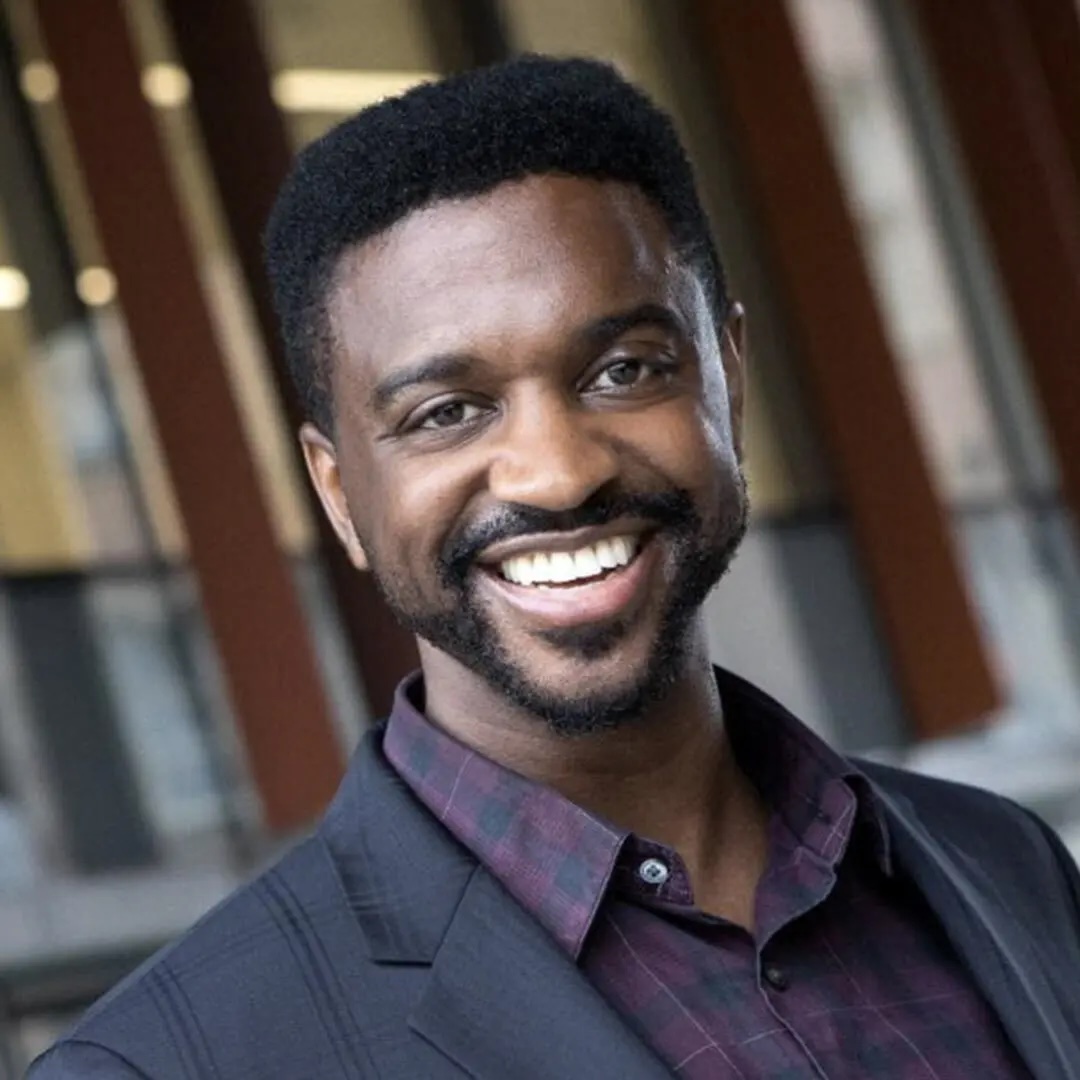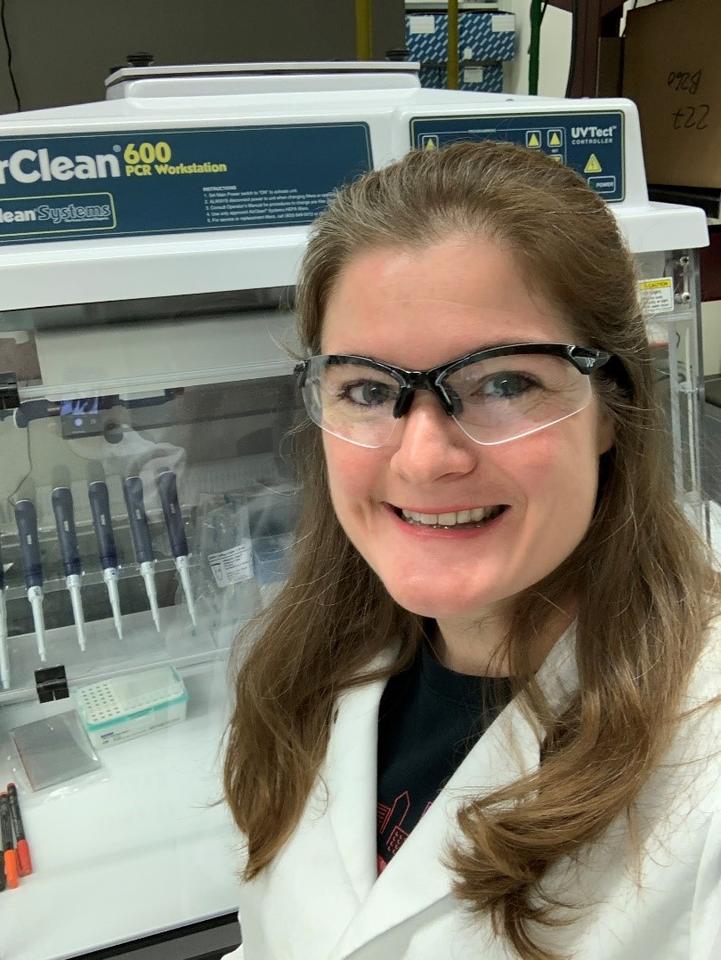Damena Agonafer, University of Maryland Clark School Faculty Fellow and associate professor of mechanical engineering, Justyna Zwolak, adjunct assistant professor in the University of Maryland Institute for Advanced Computer Studies (UMIACS), affiliate fellow in the Joint Center for Quantum Information and Computer Science (QuICS), and mathematician with the National Institute of Standards and Technology (NIST), and Kyle Anderson and Megan Cleveland, both scientists with the Institute for Bioscience and Biotechnology Research at the National Institute of Standards and Technology, are among 399 scientists and engineers nationwide recognized by President Biden with the Presidential Early Career Award for Scientists and Engineers (PECASE). A total of six scientists from the University of Maryland were honored with the PECASE award, including Zohreh Davoudi and Soheil Feizi from the College of Computer, Mathematical, and Natural Sciences (CMNS). Established in 1996, the PECASE award is the U.S. government’s highest honor for early-career professionals, recognizing those who have shown exceptional potential for leadership in their fields.
Damena Agonafer

Damena Agonafer’s award recognizes his research on the fundamental limits of evaporative cooling for high-powered electronic systems, with applications that range from data centers to electric vehicles.
He pursues a wide range of research at the intersection of engineering, energy, and sustainability, including as a faculty affiliate of the A. James Clark School of Engineering’s Center for Risk and Reliability and the Maryland Energy Innovation Institute. He is also UMD site lead for the new multi-institutional Environmentally Applied Refrigerant Technology Hub, a $26 million, National Science Foundation (NSF)-funded center focused on reining in the environmental costs of refrigeration technologies.
“It’s humbling to be recognized by the White House for the contributions I’ve been able to make in the area of heat transfer and thermal management,” Agonafer said. “In addition to the research itself, I’ve been able to undertake significant education and outreach efforts through my NSF CAREER Award, including programs aimed at providing educational opportunities to underrepresented students.”
Kyle Anderson
 Kyle Anderson has established himself as an internationally recognized technical leader in the field of hydrogen-deuterium mass spectrometry (HDX-MS), a technique which facilitates studies of the complex folding and motion of the proteins that comprise many new biopharmaceuticals. Skilled at inventing practical methods amenable to translation into the commercial space, thereby maximizing industrial impact, he is actively developing and promoting the adoption of state-of-the-art methods, instrumentation, and software for HDX-MS. Among his many accomplishments, Dr. Anderson is internationally recognized as a pioneer and current leading researcher in the application of subzero temperature chromatography in conjunction with HDX-MS.
Kyle Anderson has established himself as an internationally recognized technical leader in the field of hydrogen-deuterium mass spectrometry (HDX-MS), a technique which facilitates studies of the complex folding and motion of the proteins that comprise many new biopharmaceuticals. Skilled at inventing practical methods amenable to translation into the commercial space, thereby maximizing industrial impact, he is actively developing and promoting the adoption of state-of-the-art methods, instrumentation, and software for HDX-MS. Among his many accomplishments, Dr. Anderson is internationally recognized as a pioneer and current leading researcher in the application of subzero temperature chromatography in conjunction with HDX-MS.
Megan Cleveland
 Megan Cleveland’s research is focused on clinical diagnostics and biomanufacturing. She has contributed much to developing advanced materials for digital PCR and next generation sequencing. Cleveland has also played a key role in leading multiple projects including virus DNA qualitative standards NIST SRM 2365 and 2367, research test grade material for SARS-CoV-2, and more recently, genetic material to validate bird flu diagnostic tests. Currently, she is also co-leading a team working on the development of NISTCHO RM, a reference mammalian cell line that produces the sequence of the NISTmAb RM 8671. Cleveland’s work is and continues to contribute to push the boundaries of knowledge and application of next-generation materials in a wide range of scientific fields from genomics to biomanufacturing.
Megan Cleveland’s research is focused on clinical diagnostics and biomanufacturing. She has contributed much to developing advanced materials for digital PCR and next generation sequencing. Cleveland has also played a key role in leading multiple projects including virus DNA qualitative standards NIST SRM 2365 and 2367, research test grade material for SARS-CoV-2, and more recently, genetic material to validate bird flu diagnostic tests. Currently, she is also co-leading a team working on the development of NISTCHO RM, a reference mammalian cell line that produces the sequence of the NISTmAb RM 8671. Cleveland’s work is and continues to contribute to push the boundaries of knowledge and application of next-generation materials in a wide range of scientific fields from genomics to biomanufacturing.
Justyna Zwolak
Justyna Zwolak is an affiliate fellow in QuICS, with adjunct appointments in physics and UMIACS. She was recognized for research combining machine learning, computer vision and physics-based heuristics to calibrate and control quantum systems, with particular emphasis on enabling the scale-up of semiconductor quantum dot devices, a leading system for building quantum computers.
 Zwolak has developed fundamental and applied advances at the intersection of machine learning and quantum information science, advancing the state-of-the-art in automating challenging quantum computing experiments as well as providing a new foundation for high-dimensional optimization problems. Her novel use of machine learning to automate the arduous process of tuning quantum dots so that they are usable as quantum computing bits (“qubits”) has enabled such devices to be seriously considered as candidates technologies for creating quantum computers, and also helped spawn a whole new subfield of physics focused on the automated control of precision experiments.
Zwolak has developed fundamental and applied advances at the intersection of machine learning and quantum information science, advancing the state-of-the-art in automating challenging quantum computing experiments as well as providing a new foundation for high-dimensional optimization problems. Her novel use of machine learning to automate the arduous process of tuning quantum dots so that they are usable as quantum computing bits (“qubits”) has enabled such devices to be seriously considered as candidates technologies for creating quantum computers, and also helped spawn a whole new subfield of physics focused on the automated control of precision experiments.
Original story written by Bailey Bedford, Robert Herschbach and Tom Ventsias
